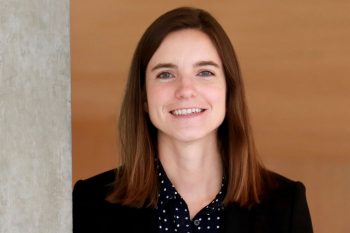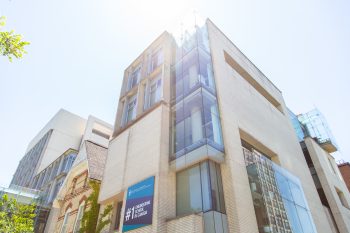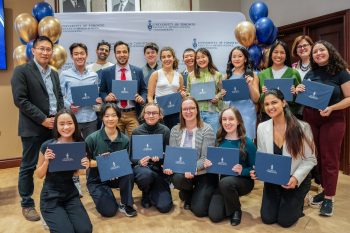February 9, 2009
By: Anjum Nayyar
In an age where companies employing engineers are multinational, engineers must be well-versed in the fundamentals of dealing with diverse business cultures. These days, they must also deal with adverse economic conditions and a very tight marketplace.
“Many Canadian companies have international reach,” said Professor Cristina Amon, Dean of the Faculty of Applied Science and Engineering. “U of T Engineering has a unique opportunity because the diversity of our student body and the City of Toronto provide the chance for students to appreciate working with a wide variety of people and cultures.”
Amon said U of T’s graduates must collaborate and compete with engineers from around the world and competition from emerging economies is very real. As a result, the Faculty is expected to introduce a new minor in globalization for engineering students in 2010. The Faculty has already started a new minor in environmental engineering and sustainable energy as well as a major in energy systems.
The globalization minor will require either study abroad or a working experience abroad, plus a series of required courses. Some of the topics that will be covered include sustainability, renewable energy and some of the social values of engineering.
“We are actively growing opportunities for students to go to different countries to further their engineering education through international exchange programs or to gain international work experience through the professional experience year (PEY) program,” Amon said.
The new minor isn’t the only step the Faculty is taking towards broadening its scope. One of the outcomes from a 2007 strategic planning retreat was a recommendation to recognize the rapid pace of globalization and the increasing competition and changing workplace in the Faculty’s programs and activities.
Accordingly Amon and Professor Yu-Ling Cheng created a Task Force on Globalization and Engineering to recommend ways of better preparing graduates for a globalizing workplace.
“The problems that our students will be addressing when they graduate will also be global in context,” said Cheng, the Task Force’s chair. “The challenges and workplaces they’ll encounter will all require a global perspective. A lot of our courses have strong technical content and we need to connect that content to bigger societal issues. The Task Force helped us define the dimensions of globalization that we needed to address.”
The Task Force is looking at the possibility of a new centre within the Faculty to concentrate, foster and co-ordinate activities on global engineering. Included among its key goals will be training engineers in global engineering approaches and the design of appropriate and sustainable technologies. It would also serve as a resource in developing a global perspective in the Faculty’s academic and research programs.
The Task Force has also just launched a series of six globalization seminars. The goal of the seminars is to explore how the research and education missions in engineering can directly address global challenges.



